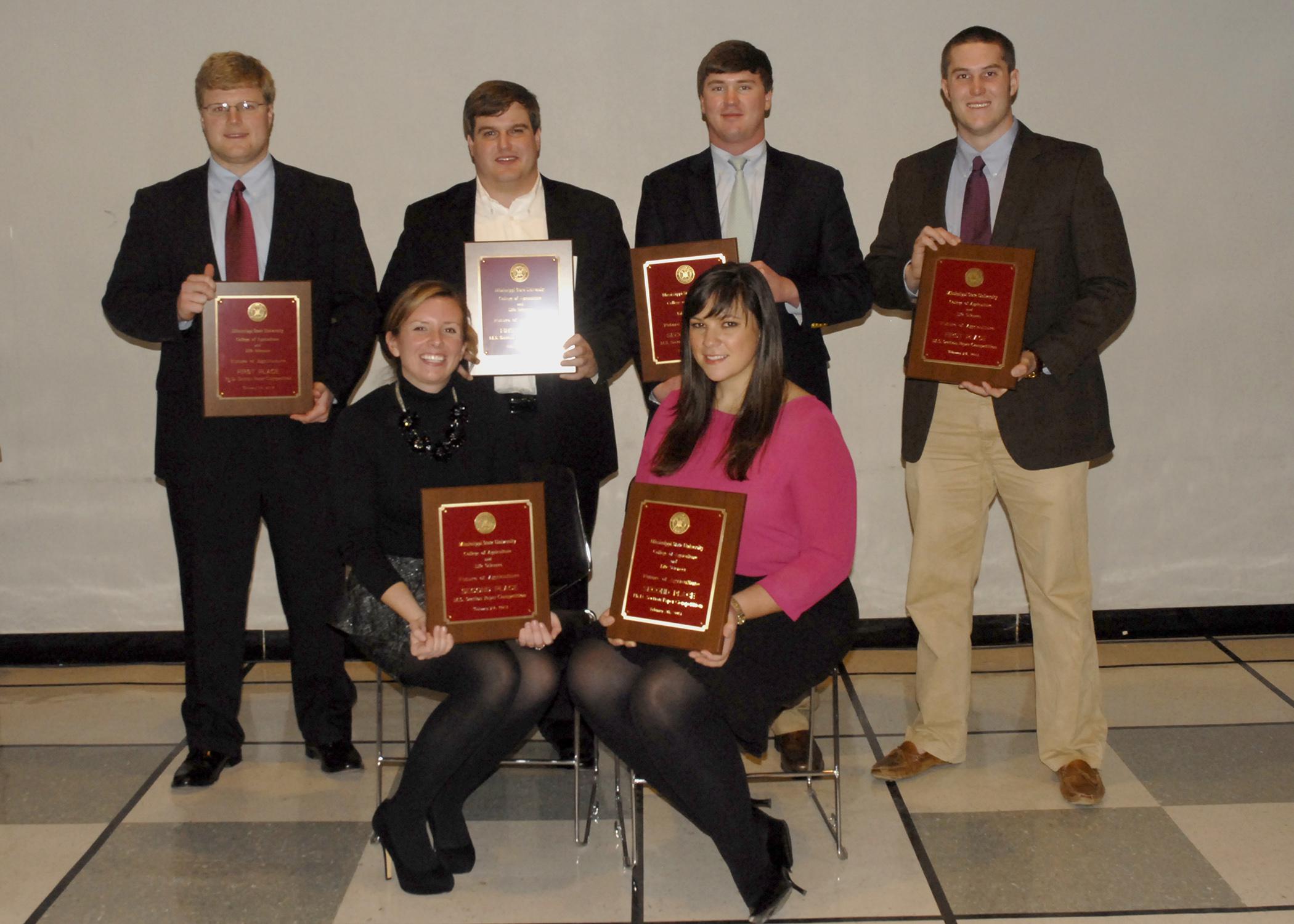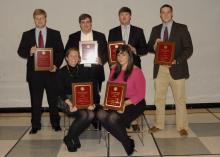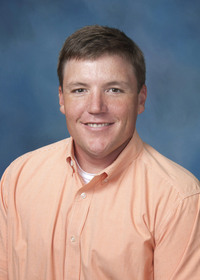Information Possibly Outdated
The information presented on this page was originally released on February 20, 2013. It may not be outdated, but please search our site for more current information. If you plan to quote or reference this information in a publication, please check with the Extension specialist or author before proceeding.
'Agriculture Idol' contest seeks future industry stars
MISSISSIPPI STATE -- Mississippi State University showcased top graduate students in a competition described by organizers as “American Idol for agriculture.”
Jason Bond, associate Extension and research professor at MSU’s Delta Research and Extension Center in Stoneville, said the recent “Future of Agriculture Graduate Student Competition” was a win-win-win for students, industry representatives and farmers.
“We are proud of our research programs, and we want to highlight what graduate students are doing,” he said. “This competition gave presenters the opportunity to speak in front of a diverse audience, and it also gave people outside academia the chance to hear about MSU research from future industry leaders.”
The Feb. 7 event was the first competition of its kind for graduate students in the Department of Plant and Soil Sciences and the Department of Biochemistry, Molecular Biology, Entomology and Plant Pathology. Twelve master’s students and five doctoral students made presentations on their research and took questions from the audience, which was composed of farmers, crop consultants and university and industry representatives.
“Students get experience making presentations at scientific meetings, but this gave them the opportunity to translate it for the general public,” Bond said. “This also provided a platform for them to be heard by industry representatives who might be future employers.”
Chip Graham, principal scientist for seed treatments with Bayer Corp., earned his master’s in agronomy from MSU in 1985. He said industry representatives benefitted from the contest.
“It was helpful to hear the students speak in a situation that is out of their comfort zone. They did a great job responding to questions that were similar to what they might be asked in a real-world environment,” Graham said.
Amber Eytcheson of Stillwater, Okla., a doctoral student in weed science, said the experience was very different from presenting at scientific meetings.
“The questions were more like what an Extension agent might receive out in the field,” she said. “The emphasis was on what is relevant to producers.”
Eytcheson, a native of Marthasville, Mo., earned her bachelor’s and master’s degrees from Oklahoma State University. She placed second with her presentation on the effects of removal time and density of volunteer corn populations on cotton.
“Placement did not matter as much as doing my best,” she said.
Other participants who placed in the competition included Ben Von Kanel of Lexa, Ark., first place in the doctoral division; Andrew Adams of Greenville and Wilks Wood of Cleveland, first places in each of their master’s divisions; and Garret Montgomery of Union City, Tenn., and Aly Shinkle of Leland, second places in each of their master’s divisions.
The competition and awards luncheon were sponsored by the Mississippi Soybean Promotion Board, the Mississippi Agricultural and Forestry Experiment Station and the MSU Extension Service. Winners earned $300 for first place and $200 for second place. Competition organizers said they intend to make it an annual event.





